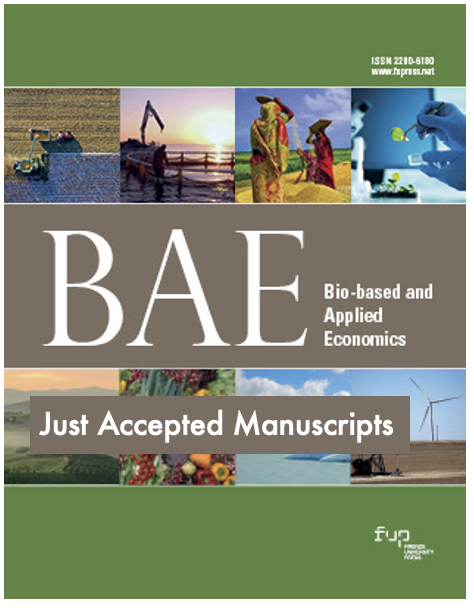The Importance of Wooden Biomass in the Transition to a Bioeconomy in Latvia
Published 2025-06-26
Keywords
- biobased energy,
- non-biobased energy,
- product tax,
- subsidy
How to Cite
Copyright (c) 2023 Vineta Tetere, Jack Peerlings, Liesbeth Dries

This work is licensed under a Creative Commons Attribution 4.0 International License.
Abstract
The EU Green Deal advocates decarbonizing the EU’s energy sector, largely by transitioning to renewable sources. Latvia aims to increase renewable energy production by 10% by 2030, prioritizing biomass from forests and wood for bioenergy. This paper evaluates implementing a tax on non-biobased energy alongside a subsidy for biobased energy, particularly wood biomass, to promote its substitution as a step towards climate neutrality and energy self-sufficiency. Additionally, it examines technological advancements in the bioenergy sector. Using an applied general equilibrium model and 2015 supply and use data, the study assumes a nested production structure, enabling explicit substitution between domestic and imported inputs. Given Latvia’s heavy reliance on imported fossil fuels, these measures could lead to an 18% increase in bioenergy production, reducing CO2 emissions by 0.5 - 3.2%, and reducing fossil fuel imports by 1.04 – 3.9%.






